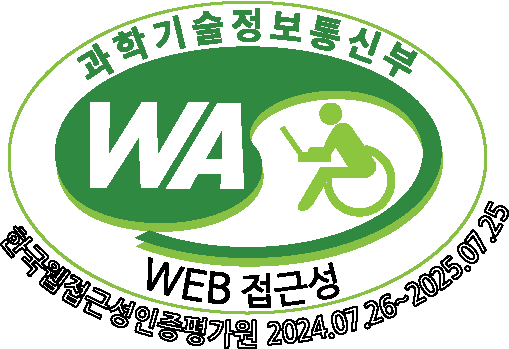회의결과
[ARF] [공동의장요약문] ARF Seminar on Non-Proliferation of Weapons of Mass Destruction,Singapore, 27-29 March 2006
- 부서명
- 외교부 > 남아시아대양주국 > 남아시아대양주지역협력과
- 작성일
- 2007-12-13
- 조회수
- 2381
ARF Seminar on Non-proliferation of
Weapons of Mass Destruction
27-29 March 2006
Co-Chairs' Summary
Introduction
1. The ARF Seminar on Non-Proliferation of Weapons of Mass Destruction (WMD) was held on 27-29 March 2006 in
2. The meeting was attended by representatives of the ASEAN Secretariat, Australia, Brunei Darussalam, Cambodia, Canada, China, the European Union, India, Indonesia, Japan, the Democratic People's Republic of Korea, the Republic of Korea, the Lao People's Democratic Republic, Malaysia, Mongolia, Myanmar, New Zealand, Pakistan, Papua New Guinea, the Philippines, the Russian Federation, Thailand, Timor Leste, the United States of America and Vietnam. The list of delegates is attached as Annex I. The Agenda and Programme is attached as Annex II. Copies of the statements and presentations that were available at the Seminar are attached as Annex III.
Opening Session
3. At the opening session,
Summary of Seminar Sessions:
Session 1 - The Proliferation Threat
4. Session 1 was chaired by
Session 2 - The Non-Proliferation Regime
5. Session 2 was chaired by the
(a)
(b)
(c)
(d)
(e)
For organizational reasons, it was not possible to have a presentation on the Chemical Weapons Convention. There was a short discussion on the topics of the presentation.
Session 3
6. Session 3 was chaired by
(a)
(b) The
(c)
(d) The
Session 4 - Improving Export Controls and Strengthening Safeguards
7. Session 4 was chaired by the
(a)
(b)
(c)
(d) The ROK gave a voluntary progress report on its export control regime.
(e)
(f)
Session 5 - Co-ordinating Regional Responses to Proliferation
8. Before the formal start of Session 5, the delegation of
(a) The
(b)
(c)
Closing session
9. The Co-chairs made brief statements of thanks, and the Seminar was formally closed at
Co-chairs' Summary
10. The participants welcomed the Seminar as a useful platform to advance the ARF dialogue on cooperation on non-proliferation of WMD, in line with the objectives set out in the 2004 ARF Jakarta Statement on Non-proliferation. Participants recognised that the proliferation of WMD in all their aspects and their means of delivery constitute a threat to international peace and security and a growing danger to all states. There was now also a pressing threat of the acquisition of WMD and their means of delivery by non-state actors for use in terrorist activities. There was support for the universalisation of the IAEA Additional Protocol as a standard for safeguards and verification, and for UNSC Resolution 1540.
11. Participants reported on their respective national non-proliferation efforts, and exchanged views on challenges facing the implementation of domestic controls. Participants reported vigorous efforts to strengthen their national export control regimes, and increase their participation in and co-operation with international WMD control regimes; assistance in capacity building was needed in some cases. Participants agreed that co-operation at all levels, and compliance with international agreements were necessary for non-proliferation activities to be effective. There was a useful discussion of how export control regimes contribute to non-proliferation efforts. Participants also noted the trend towards the increasing use of "catch-all" provisions in their implementation of export controls.
12. Participants underscored the importance of ensuring full compliance with non-proliferation obligations and commitments. Participants also noted the challenge of ensuring that the full security benefits of these agreements are obtained. During the discussions, the difficulty of establishing a verification mechanism for the Biological Weapons Convention was mentioned. The pace of destruction of stockpiles of chemical weapons was discussed. Some participants expressed the view that selective application of any WMD control regime would undermine its effectiveness. Participants also stressed the importance of the full implementation of and compliance with the NPT in all its aspects. They addressed the aspects of the NPT related to non-proliferation, disarmament and the peaceful use of nuclear energy. Participants agreed that the NPT remains a cornerstone of the international non-proliferation regime. It was proposed that the focus should be on practical steps to improve implementation and compliance with non-proliferation obligations.
13. In the context of the discussion of supplementary tools for non-proliferation efforts, clarification was sought on (i) the legality of actions taken under the PSI; (ii) the PSI's compatibility with the Protocol to the Convention for the Suppression of Unlawful Acts Against the Safety of Marine Navigation (the SUA Convention), especially in respect of ship interdictions; and (iii) the effect of the PSI upon regional stability, including the situation in the Korean Peninsula. It was explained in response that action taken under the PSI was voluntary and would be consistent with relevant international and national law, including the UN Convention on the Law of the Seas (UNCLOS), and that the SUA Convention itself allowed for interdictions of shipping. It was also explained that some countries that were not participants in the PSI would nonetheless observe PSI exercises and co-operate with participants on a case-by-case basis.
Conclusion
14. Participants expressed appreciation for the seminars and workshops conducted under the ARF on these issues, which they found helpful for the development and strengthening of their own domestic systems. They welcomed offers by some participants to provide more focused and specific assistance in developing expertise on particular issues. They concluded that the meeting had been useful for the sharing of views, and as a reflection of the multiplicity of perspectives and experience within the ARF. Good progress was reported by many countries in strengthening their non-proliferation systems. Participants recognized that more still needed to be done, and in this context expressed their willingness to continue closer co-operation.
. . . . .
/끝/
- 메뉴담당부서
- 아세안협력과
- 전화
- 02-2100-8449
